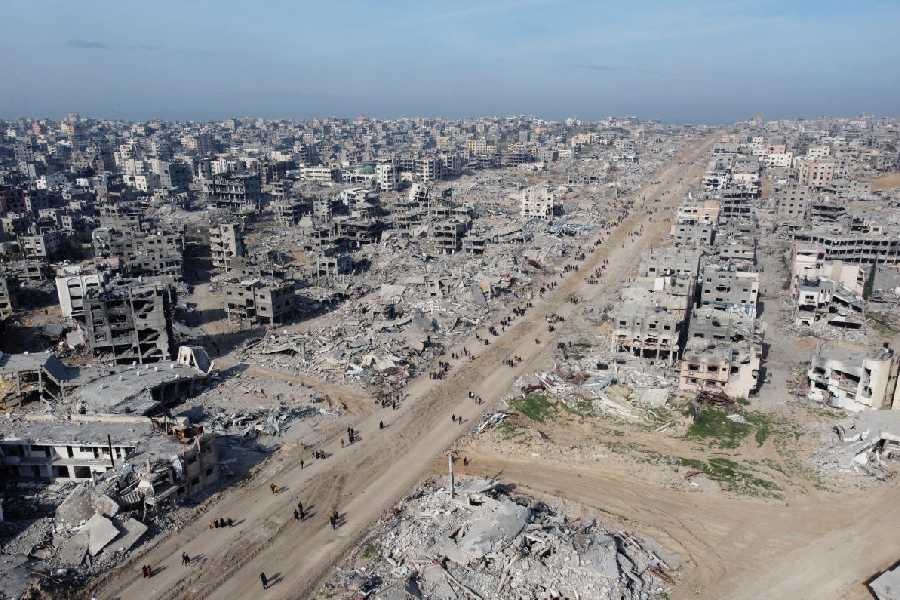The Supreme Court on Monday ruled that citizens cannot be coerced into taking Covid vaccines since it violates the fundamental right to privacy, but said “reasonable” restrictions on individual rights may be imposed in future if unvaccinated people were found to pose a health threat to others.
The court upheld the government’s vaccination policy as sound and consistent with World Health Organisation guidelines, including the vaccination of children.
It asked the states not to impose restrictions on the unvaccinated, but added that such restrictions — “subject to constitutional scrutiny” — can be considered in the future in public interest “if the situation so warrants”.
The petitioner had contended that while the Centre had said the vaccination was voluntary, some state governments were denying the unvaccinated access to public places and services.
The court directed the Centre to publicise the adverse effects faced by some vaccinated patients — “without listing any personal or confidential data” — so that citizens could make an informed choice.
The bench of Justices L. Nageswara Rao and B.R. Gavai passed the 115-page judgment after going through scientific material furnished by the Centre and a petitioner for and against the country’s vaccination policy, respectively.
The petitioner, Dr Joseph Puliyel, a former member of the National Technical Advisory Group on Immunisation, had argued that no scientific evidence supported the government’s vaccination policy, particularly its alleged efforts to make the jab mandatory for children.
Some of the court’s conclusions:
⚫ Bodily integrity is protected under Article 21 of the Constitution, and no one can be forced into taking the jab.
⚫ Personal autonomy involves an individual’s right to determine how they should live their own life, which encompasses the right to refuse any medical treatment in the sphere of individual health.
“However, if there is a likelihood of such individuals spreading the infection to other people or contributing to mutation of the virus or burdening of the public health infrastructure… the government can (impose) certain limitations on individual rights that are reasonable and proportionate,” Justice Rao, who authored the judgment, said.
The court cited “the near-unanimous views of experts on the benefits of vaccination in dealing with severe disease, reduction in oxygen requirement, hospital and ICU admissions and mortality and stopping new variants from emerging” to conclude that the government’s vaccination policy “cannot be said to be unreasonable”.
No-jab curbs
However, Justice Rao wrote that neither the Centre nor the state governments had produced any material to justify discriminatory treatment of unvaccinated people in public places.
“…The restrictions on unvaccinated individuals imposed through vaccine mandates cannot be considered to be proportionate, especially since both vaccinated and unvaccinated individuals presently appear to be susceptible to transmission of the virus at similar levels,” the judgment said.
It, however, added: “This judgment is not to be construed as impeding, in any manner, the lawful exercise of power by the executive to take suitable measures for prevention of infection and transmission of the virus in public interest, which may also take the form of restrictions on unvaccinated people in the future, if the situation so warrants. Such restrictions will be subject to constitutional scrutiny to examine if they meet the threefold requirement for intrusion into rights of individuals.”
The petitioner had cited instances of the states imposing restrictions on the unvaccinated, such as:
⚫ A Delhi government order of October 8 last year asking its employees — including frontline and healthcare workers and teachers and school and college staff — not to report at their workplaces after October 16 without having taken at least the first vaccine dose.
⚫ A Madhya Pradesh directive of November 8 making full vaccination mandatory for obtaining food grains from fair price shops
⚫ A Maharashtra order of November 27 requiring people to be fully vaccinated if they wanted to use public transport, among others.
⚫ A Tamil Nadu order of November 18 allowing only vaccinated people to enter public places, schools, colleges, hostels, boarding houses, factories and shops.
⚫ Instances of students aged 15 to 18 not being allowed to take their exams without vaccination.
“(As long as) the infection rate remains low and (until) any new development or research finding emerges which provides due justification to impose reasonable and proportionate restrictions on the rights of unvaccinated individuals, we suggest that all authorities in this country, including private organisations and educational institutions, review the relevant orders and instructions imposing restrictions on unvaccinated individuals in terms of access to public places, services and resources, if not already recalled,” the court said.
It clarified that the “suggestion” was “limited to the present situation” and did not “extend to any other directions requiring maintenance of Covid-appropriate behaviour issued by the Union or the state governments”.












